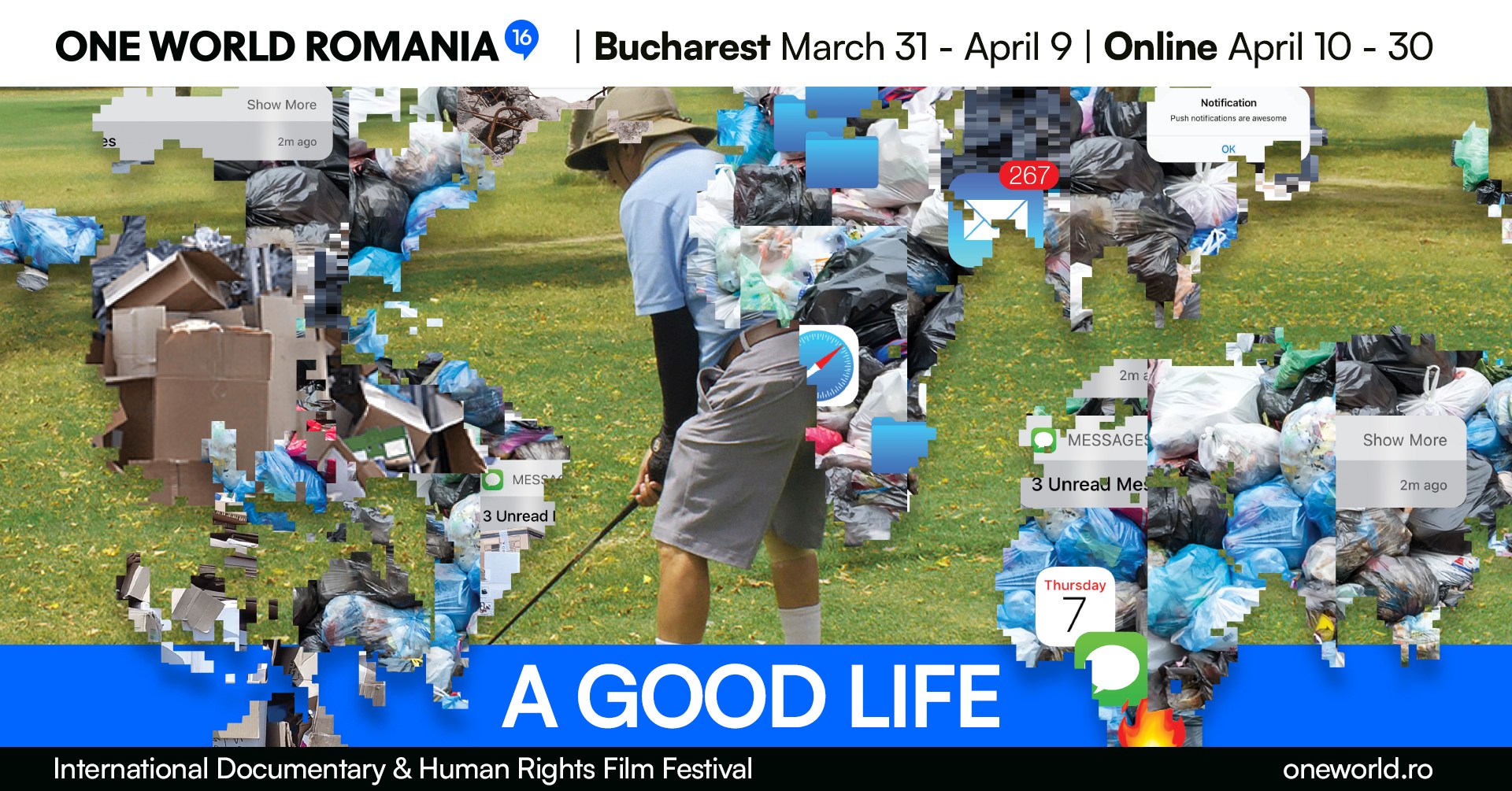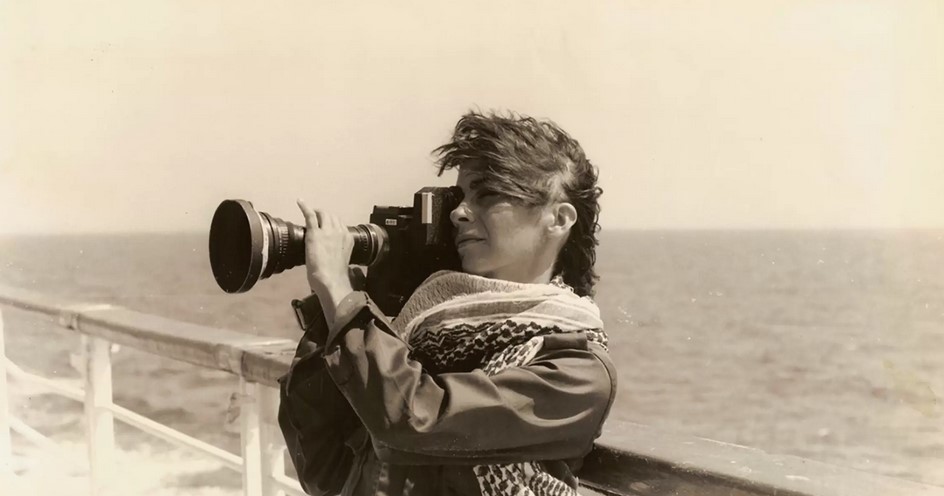One World Romania #16 – An insight into this year’s edition
One World Romania International Documentary & Human Rights Film Festival will take place in person between March 31 – April 9 in Bucharest, and online, available only on Romanian territory, between April 10-30.

This year’s program is curated by Anca Păunescu and Andrei Tănăsescu and includes 35 feature, medium and short-length documentary films, two retrospectives dedicated to directors Jocelyne Saab and Želimir Žilnik, a retrospective dedicated to the 30th anniversary of the Visual Arts Foundation, and a series of side events such as panel talks, workshops and exhibitions.
The theme of the 16th edition,“A good life”, focuses on “the pursuit of personal well-being, societal / cultural aspirations, political unity, technological development, which is reflected in a complex program that contextualizes and questions the way in which the philosophical concept of good finds multiple portraits in culture and today’s society, oscillating between immediate individual gratification and sustainable collective well-being,” as described by the organizers.
The film selection is divided into 5 sections: “Good Life”, “Old Scars, New Wounds”, “Resist to Exist”, “24/7”, “All that Breathes”.
Opening the festival is the 2022 Golden Lion winner All the Beauty and the Bloodshed (dir. Laura Poitras). The documentary explores the life of artist Nan Goldin and her fight against the Sackler family, owners of pharmaceutical companies largely responsible for the opioid epidemic in the US.
Retrospective – The Visual Arts Foundation, the 1990s
The Visual Arts Foundation (FAV) was born in 1992 when director of photography Vivi Drăgan Vasile managed to obtain private funding for setting up a space with filming and editing equipment, open to young directors and artists who could thus develop their projects.
Among the filmmakers and visual artists who have been part of the FAV family are Radu Muntean, Radu Ionescu, Vali Hotea, Sorin Botoșeneanu, Cornel Mihalache, Anca Damian, Alexandru Solomon, Geta Brătescu, Radu Igazsag, Marilena Preda Sânc, Călin Dan, and many others.
The retrospective organised by OWR offers the chance to revisit an important decade in Romanian recent history and includes three film programs: documentary, experimental and musical.
Retrospective – Jocelyne Saab

Jocelyne Saab was born in Beirut, in 1948, the year of the Palestinian Catastrophe – Nakba –, which involved the exodus of a large part of Palestinians as a result of hostilities between Arabs and Jews.
A pioneer of Lebanese cinema, Jocelyne Saab’s films focus on the underprivileged, exiles, lands at war and those who remain unheard in times of crisis. Saab brings historical violence to the public’s attention and invites reflection on human actions.
In 1973, she was sent to the front lines of the October War (Yom Kippur) in Egypt and Syria, on the border with Israel, to document it, then to Iraq to cover Saddam Hussein’s war against the Kurds (1980-1988). Her documentary, Palestinian Women, depicting the resistance of Palestinian women in Lebanon, both through education and by use of firearms, was censured and prevented from being broadcast by France 3, which led her to continue on her own and make her documentaries independently.
Retrospective & Masterclass – Želimir Žilnik
A prominent figure of the Yugoslav Black Wave film movement, Želimir Žilnik’s oeuvre revolves around socialism and its liquidation, the Yugoslav wars and the disintegration of the state, democracy and its defeat, and goes as far as the trends of “pledging allegiance” to the EU.
The masterclass will give the public the opportunity to delve into the personal vision of the artist and interact with him. The masterclass takes place on April 8, with free access.
Public debate: Do we still need the press?
In a talk moderated by Sorana Stănescu, journalists Emilia Șercan, Cristian Delcea (Recorder) and Florin Râșteiu (Gen, știri) discuss the current state of the media in Romania and the level of media literacy among the youth: do they understand how the media is financed and what are its vulnerabilities? Are they able to watch a TV debate in a critical way? Do they know how much money the press gets from political parties and how that happens? The talk will take place at the Czech Center on April 4, at 5 pm.
The screenings will take place at the Elvire Popesco Cinema, Eforie Cinematheque, ARCUB and other locations across Bucharest. You can find the festival program here. Tickets are available on Eventbook.
For more details, visit the OWR website, Facebook page or the Telegram account dedicated to this edition.
Writer, photographer and videographer. For Films in Frame she writes news about the latest happenings in the film world and brings to the readers' attention the productions that can be seen at the cinema. When she's not writing articles, she's photographing people in a small studio or searching for new cake recipes.
